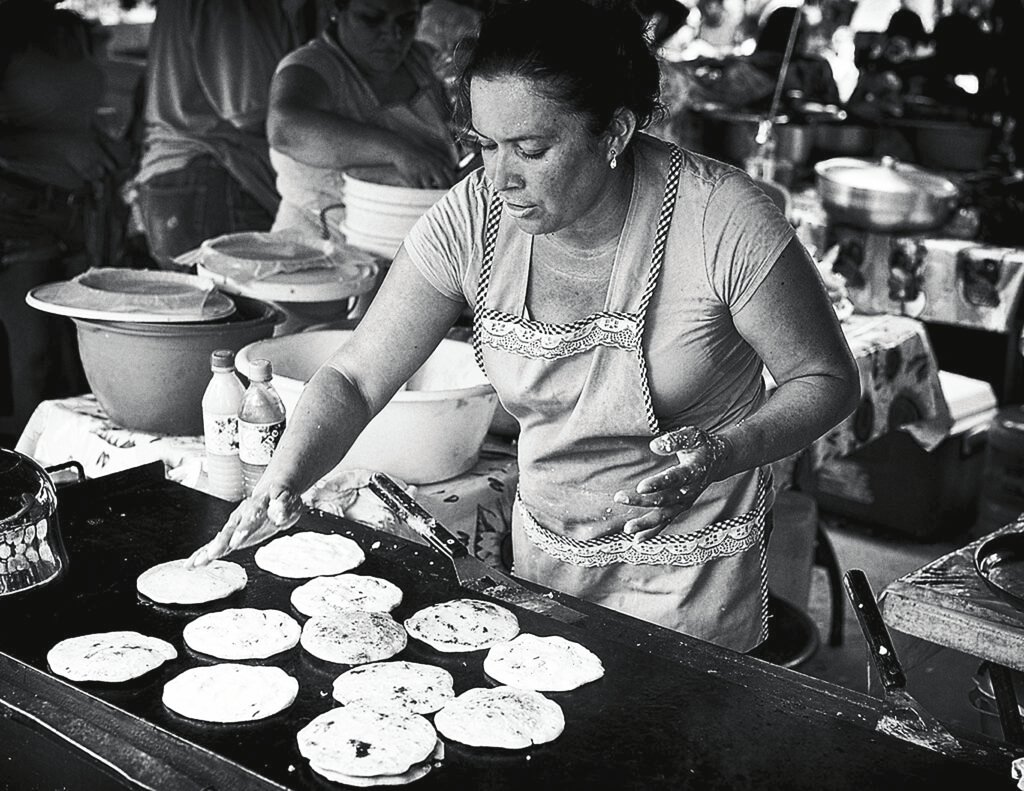
At a bustling corner of the Belize City open market, where the sun hits tin roofs and the air hums with Creole, Spanish, and drums from someone’s speaker, Doña Marta stands behind a table dusted with cornmeal, hands moving in rhythm older than memory.
She wears a faded apron over a floral skirt, hair tied in a red cloth, sweat glistening on her forehead.
Beside her: a comal—a flat iron griddle resting over open flame—crackling, popping, breathing the day’s first song. She pats each tortilla by hand, presses it gently, not with a machine but with practiced palms—
slap, turn, press, flip—a soft percussion that marks her place in the market’s morning rhythm.
She starts before dawn. Kneads the masa while the city still yawns. Her youngest son helps her carry the propane tank and flour sack. Her eldest is already working construction across the bridge.
The customers come early: vendors with onions in crates, taxi drivers with greasy bills, schoolgirls with braids and hunger.
“Three for a dollar, hot and soft!” she calls in sing-song English laced with Kriol. Or sometimes in Spanish, or Garifuna, or quiet Mayan words for the old women who nod but don’t speak.
The tortillas puff gently, steam rising in halos. She flips them with her fingers—quick and fearless.
No tongs, no gloves. Just skin against flame, like a kind of trust. Sometimes she’ll sneak a child an extra one. Sometimes she hums an old song—soft, from the villages near Orange Walk where she learned from her mother, whose hands once moved just the same.
By noon, she’s sold nearly a hundred. The sun bears down. Her arms ache. The fire slows. But still, she smiles when a young man asks: “Still hot, Miss?”
And she answers with pride: “Always, mi love. I just made them.”
Because to Doña Marta, tortillas are not just food. They are warmth. Survival. A soft circle of culture folded in paper and handed across generations. And in the smoke of the market, amid ripe fruit and noise and life, her fire keeps on burning.